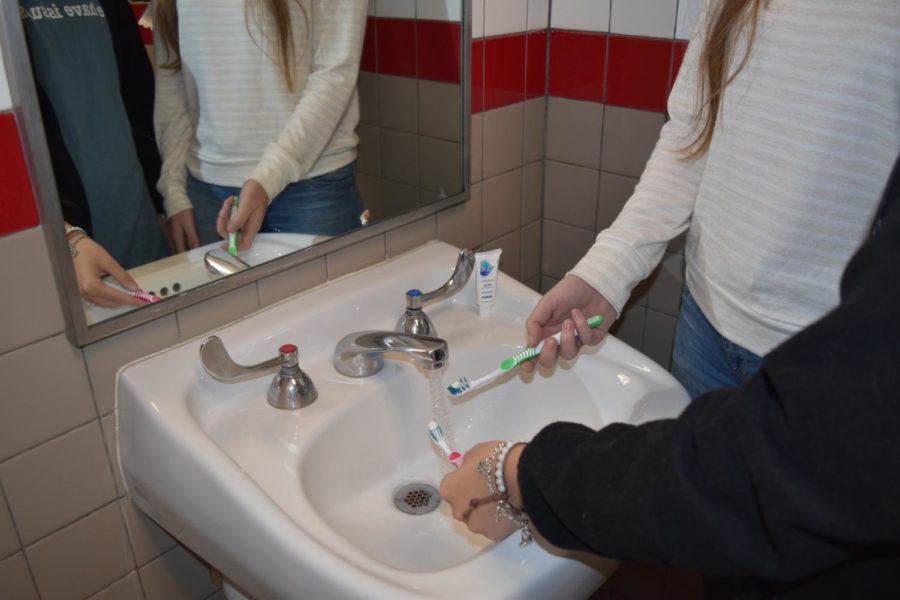Fluoridation in Freddyburg Fuels Fiery Debate
December 5, 2019
Several studies have “proven” it’s good for you, and others have “proven” it’s bad for you. I’m confused, and I’m sure you are too. When you search “fluoridation in drinking water,” there are so many different results that it can be quite confusing. Harvard claims fluoride is bad for you; The American Cancer Society says it’s not a big deal; underground wellness sites say fluoridation is the worst thing for you possible; there are conspiracy theories from wackadoo anti-vaxxers. Every single study and article contradicts another. So, what exactly is the truth? What is the background on both sides, and what are they saying? What can we deduce from this mess of information?
One thing I learned is that the limit for fluoride being added to water is 4 mg/L. If more is added, it can cause dental fluorosis. But, one of the big problems with this is that water already naturally has fluoride in it. Is this causing problems? Many think that fluoride can collect in the growth plate, and cause osteosarcomas. Osteosarcomas are cancer that has developed in the growth plate and it is incredibly rare. Nonetheless, some believe osteosarcomas can be caused by over fluoridation. Another negative result of too much fluoride is dental fluorosis. This a much more common condition that usually occurs in children. When the teeth are exposed to too much fluoride, they become softer and develop pits. If the fluorosis progresses, it can create brown pits and slowly break down teeth. Approximately two percent of children experience dental fluorosis, and one percent experience severe dental fluorosis.
But, one study was conducted in Juno, Alaska. When the dental records of 2003 and 2012 are compared (the fluoride was removed from their water in 2011), the rate of cavities significantly increased. Many dentists also say that we should “protect our children’s teeth” and keep the fluoride in our water. The American Dental Association states that fluoride greatly reduces tooth decay.
My personal opinion is that the fluoride should be taken out of Fredericksburg’s water. Fluoride is naturally already in our water. We don’t need more! You can get plenty of fluoride from your toothpaste and mouthwash. If you expose your teeth to even more, it will weaken them, and it will potentially affect your risk for cancer.
One of the reasons why Fredericksburg citizens were wanting to keep the fluoride was because of cavities. They weren’t wanting little children to get cavities. But here’s the thing: that is your own problem. If your children aren’t brushing their teeth, or they are constantly eating candy (just like how I did as a child), that should affect your family and your family only. Your child’s habit should not potentially increase my risk for cancer or give my child dental fluorosis. Ultimately, based on what I’ve found, whatever you decide won’t have a huge impact. Watch out for new studies, make sure you brush your teeth, go to the dentist regularly, and either way you’ll be fine.




































